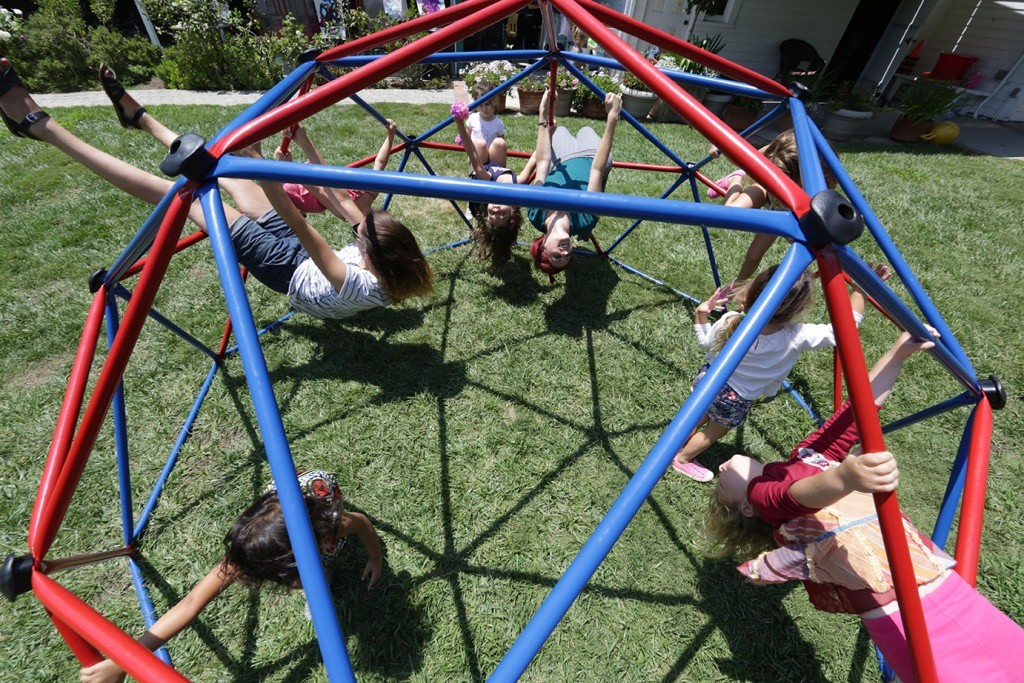Play is an essential ingredient for children; it provides the lush ground for wondering about the world, trying out ideas, building connections, negotiating constructively with peers, experimenting with ideas, learning how others think and feel, learning to be persistent, and building confidence in oneself. We see the play of our children at Brentwood Sunshine Preschool equally as essential as other activities, and we have provided a rich environment in our Yard and within our classrooms that invite children to play. The Sunshine teachers facilitate creative interactions between classmates to enhance the learning experience through intentionally setting up learning environments that draw children into play.
The importance of play is well documented in current research of early childhood education. In particular brain research shows that learning for children is enhanced through play as it helps to develop executive functioning. “Executive function has a number of different elements, but a central one is the ability to self-regulate. Kids with good self-regulation are able to control their emotions and behavior, resist impulses, and exert self-control and discipline. (“Old-Fashioned Play Builds Serious Skills,” Alix Spiegel, February 21, 2008).” Imaginative play is key in a child’s development of self-regulation, in part because children engage in self-talk as they pretend. It is this self- talk that supports self-control, a part of strengthening executive function. Imaginative play gives freedom to try on being another being or creature and fuels creativity.
Children’s play benefits and supports:
- Physical, emotional, and cognitive strength
- Confidence in dealing with new situations
- Resilience
- Negotiation skills
- Self-advocacy skills
- Decision-making skills
- Discovering areas of interests
- Collaboration and leadership skills
- Problem solving
- Spatial reasoning
- Artistic expression
Children play naturally. At the beginning, Toddlers move from strictly solitary play to onlooker play (noticing the actions of other children) and parallel play (playing alongside peers), which begins to build the understanding of the importance of others. Children at the start of their preschool years make the transition from objects being of the most importance to other children taking the main focus of their attention. This starts the development of skill at sharing and builds knowledge of what is okay and not okay in interactions with others. Children build their language skills and flexibility in play, no longer needing to only have their way – the start of the ability to both follow the lead of others and to successfully lead friends. As games become a part of play, children develop problem solving strategies and the emotional strength to lose as well as win, and to recover quickly from obstacles and disappointments.
We agree with Piaget’s understanding that “Play is the work of children” and Fred Rogers’ belief that “Play gives children a chance to practice what they are learning.” We take play very seriously.


